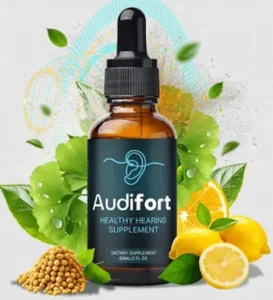Boost Your Energy: A Guide to Overcoming Iron Deficiency Anemia
Feeling tired, weak, or short of breath even after a good night’s sleep? These could be signs of iron deficiency...
Feeling tired, weak, or short of breath even after a good night’s sleep? These could be signs of iron deficiency anemia, a common but often overlooked condition affecting millions worldwide. Iron deficiency anemia occurs when your body lacks enough iron to produce hemoglobin, the protein in red blood cells responsible for carrying oxygen throughout the body. Without adequate oxygen, your organs and muscles don’t function optimally, leading to fatigue and low energy.
Heamclas-FCM Injection (Ferric carboxymaltose) is an intravenous iron replacement product used to treat iron deficiency anemia, particularly when oral iron supplements are ineffective or cannot be used. This treatment is especially beneficial for patients with chronic kidney disease, heart failure, inflammatory bowel disease, and in postpartum women or those with heavy menstrual bleeding.
Fortunately, with the right knowledge and actions, you can overcome iron deficiency anemia and regain your vitality. This guide will help you understand the causes, symptoms, and most importantly, how to boost your iron levels safely and effectively.
What Causes Iron Deficiency Anemia?
Iron deficiency anemia can develop for several reasons, including:
- Inadequate dietary intake: Not consuming enough iron-rich foods is a common cause, especially in vegetarians or those with poor nutrition.
- Blood loss: Heavy menstrual periods, gastrointestinal bleeding, or internal injuries can lead to iron loss.
- Poor iron absorption: Conditions like celiac disease or surgeries involving the stomach or intestines may impair iron absorption.
- Increased needs: Pregnancy, breastfeeding, and rapid growth phases increase the body’s iron requirement.
Knowing the root cause is important for effective treatment, so consulting a healthcare provider for proper diagnosis is essential.
Recognizing the Symptoms
Common symptoms of iron deficiency anemia include:
- Persistent fatigue and weakness
- Pale or yellowish skin
- Shortness of breath or dizziness
- Cold hands and feet
- Headaches and difficulty concentrating
- Brittle nails or hair loss
- Restless legs syndrome
If you notice these signs, especially in combination, it’s important to seek medical advice for testing and diagnosis.
How to Boost Your Iron Levels
1. Eat Iron-Rich Foods
Incorporate more iron-rich foods into your diet. There are two types of dietary iron:
- Heme iron: Found in animal products like red meat, poultry, and fish. It is more easily absorbed by the body.
- Non-heme iron: Found in plant-based foods such as spinach, lentils, beans, tofu, fortified cereals, and nuts. Although not absorbed as efficiently, these are vital sources, especially for vegetarians.
2. Enhance Iron Absorption
Vitamin C significantly improves iron absorption from plant sources. Pair iron-rich meals with vitamin C-rich foods such as oranges, strawberries, bell peppers, or tomatoes to maximize benefits.
3. Avoid Iron Blockers
Certain substances can inhibit iron absorption, including:
- Coffee and tea (due to tannins)
- Calcium supplements or dairy products consumed with iron-rich meals
- Some whole grains and legumes containing phytates
Try to consume these separately from iron-rich meals.
4. Iron Supplements
In cases where dietary changes aren’t enough, iron supplements prescribed by a doctor can help replenish iron stores quickly. It’s important to follow dosage instructions carefully, as excess iron can cause side effects.
5. Treat Underlying Conditions
If blood loss or absorption problems are causing anemia, treating those issues is critical for long-term recovery.
Lifestyle Tips for Managing Iron Deficiency Anemia
- Get regular check-ups: Follow up with your healthcare provider to monitor your iron levels.
- Rest and pace yourself: Avoid overexertion while your body rebuilds its iron stores.
- Stay hydrated: Proper hydration supports overall health and energy levels.
- Balanced diet: Include a variety of nutrients to support your body’s healing process.
When to See a Doctor
If fatigue, dizziness, or other symptoms worsen or don’t improve with diet and supplements, consult your healthcare provider. Persistent anemia may indicate other underlying health issues that require attention.
Final Thoughts
Iron deficiency anemia can significantly impact your quality of life, but it is highly manageable with the right approach. By eating iron-rich foods, enhancing absorption, and addressing underlying causes, you can boost your energy and reclaim your health.
Remember, changes might take a few weeks to months to show improvement, so be patient and consistent. If you suspect iron deficiency anemia, don’t hesitate to get tested and seek professional advice. Your body will thank you for the care and attention.






